Increasing the outreach through ICT adaptation
While the back-office MIS enables the MFP to monitor its loan portfolio, this functionality is undermined if the data analyzed by the MIS is not up-to-date or contains errors. With dispersed branch offices, paper-based transaction records and manual data entry, there can be a data delay of days and even weeks, and the possibility of introducing errors during the data entry process is high. To overcome these difficulties, BISWA introduced its technology innovation namely ‘Increasing the outreach through ICT adaptation’ at the head office with 4 IBM servers connected to all its branch offices. The staff members were provided with mobile phones of same networking to facilitate the human resource communication better.
What we deliver
The experience with the application of ICT has been quite refreshing and path breaking as the staff exposed to it are able to explore new ways of adding meaning to the work that they are performing at various levels of organization. Further ICT has opened up new challenges of taking the organizational functioning to a new level through the implementation of diverse activities in the field. Last but not the least information leading to right decision making for organizational effectiveness is going to witness a significant change in the coming years.
Whom we deliver
For the capacity building of the staff members on using computers BISWA has undertaken several in house ICT Training programs where more than 800 trainees have already been trained on how to use the technology effectively in their operational area. There are 129 staff members those who are directly dealing with different dedicated software exclusively serving micro finance activities on a daily basis.
Why is the project unique?
One of the key barriers to access to financial services to the poor and particularly to those living in remote rural areas is the unavailability of technology. So we needed a system where the services can be delivered to the remote areas at low cost, which can be done through mobile communication. Thus the organization has adopted an innovative applications of ICT for delivery of financial & payment services and adequate credit where needed, at an affordable cost to the vast section of disadvantaged and low-income groups, who currently are unbanked.” The feedback from the field on the efficacy of the recent initiatives taken & corrective mechanisms thereof, involvement of all stake-holders in this national mission, analyzing & learning from the rapidly changing & evolving the best practices, getting more out of multiple e-infrastructure already in place, working towards low-cost innovative solutions & support research thereto, large scale deployment of successful pilots using public-private partnership, ensuring participation of community would be the key to our success.
Roadmap
BISWA as a microfinance practitioner sees ICT innovation as a key strategy to take microfinance to the next level in terms of outreach and sustainability. The most fundamental ICT application is the back-office MIS. A suitably sophisticated MIS is prerequisite for the MFP to monitor the quality, sustainability and efficiency of its loan portfolio, to monitor development impact, and to manage general administrative tasks. It is not possible for the organization to upscale significantly without an MIS that can grow with the institution. Serving new clients from remote locales is a key outreach challenge for BISWA. These locales include rural areas where the population density is low, the market is smaller and service provision is more expensive. BISWA finds it difficult to serve these areas, especially when the overwhelming pressure is to reduce transaction costs and increase profit margins. One approach to meet this challenge is the “branch office franchise model”, where BISWA links with third-party merchants in remote areas. This is an extension of the mobile computing solution discussed above. These branch offices manage transactions on behalf of the bank, and they receive an agreed payment for service on a per-transaction basis. Fees might be shared by the client and MFP, on the basis that the transaction costs would otherwise be significantly higher for both parties if the service were delivered by more traditional models. Transaction data is transferred electronically to the bank either in real-time or, for example, at end-of the day. The key qualities of the branches are that they are long term businesses, respected and trusted in their communities, with computer skills and connectivity.
Contact
Dr. Khirod Chandra Malick
Bharat Integrated Social Welfare Agency (BISWA)
At:Danipali, Po: Budharaja
Sambalpur, Orissa, India
768004
URL/Website – www.biswa.org





